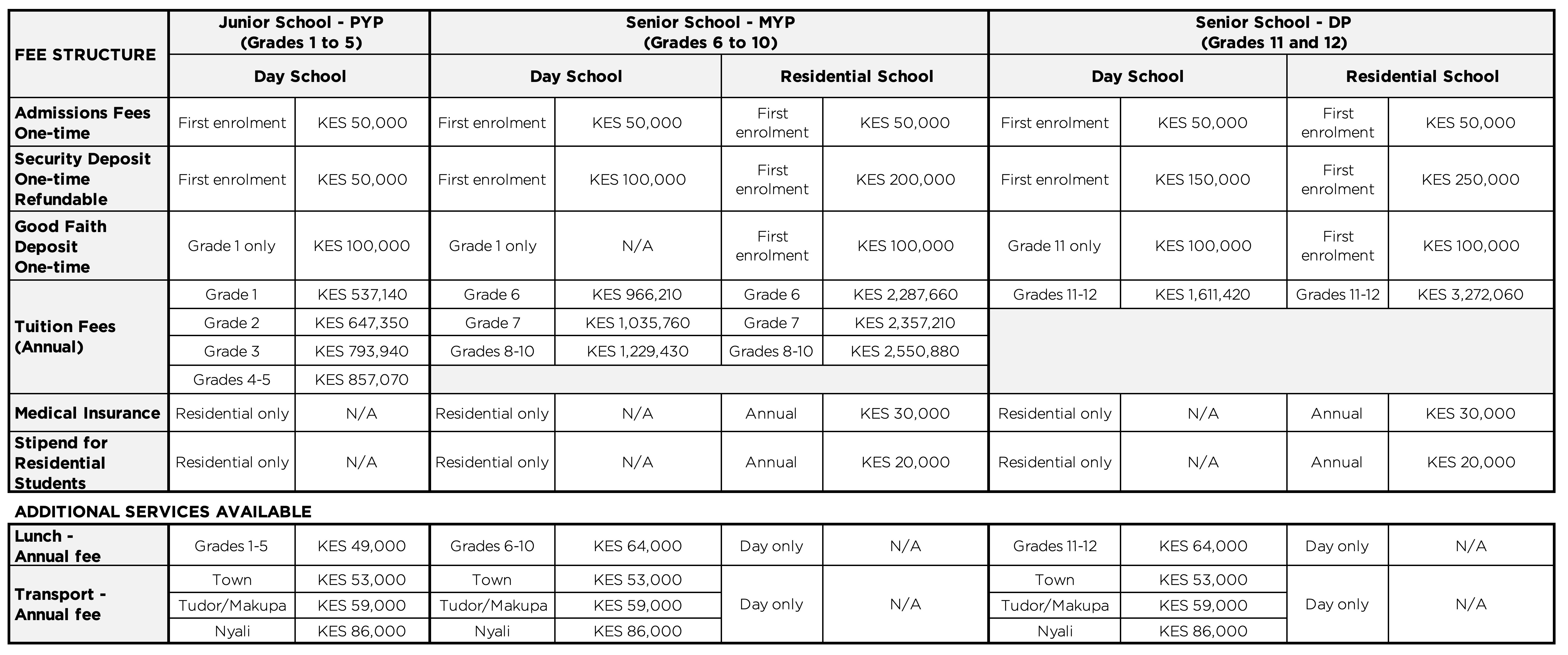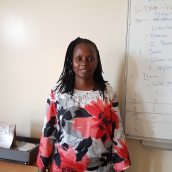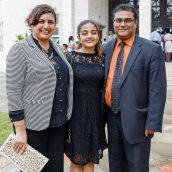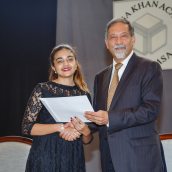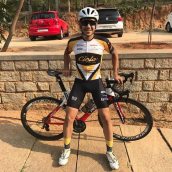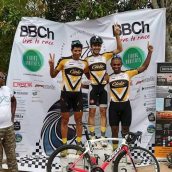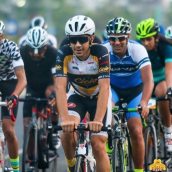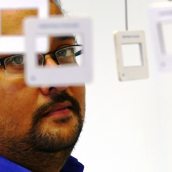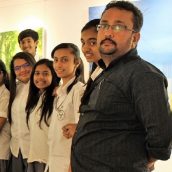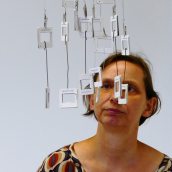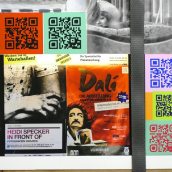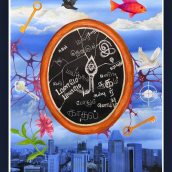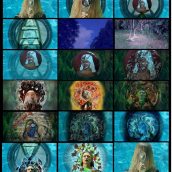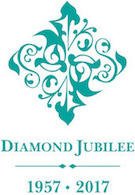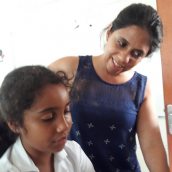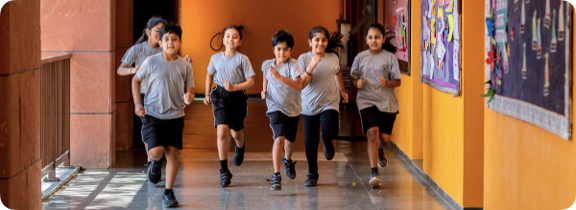
Welcome
The Aga Khan Academies is a network of schools being established by His Late Highness Prince Karim Aga Khan IV.
The underlying idea of the Aga Khan Academies network is to concentrate substantial resources on those exceptional individuals – students and teachers – who have the potential to transform society. When provided with a world-class education, exceptional students from any background can achieve their significant potential and in so doing improve their lives, the lives of their families, their communities, their country and the world.
Each Aga Khan Academy will reach out to students of all backgrounds, regardless of culture, race, religion or financial circumstance.
The Academies follow the International Baccalaureate (IB) curriculum, ensuring a global standard of educational excellence and external validation through the annual IB Diploma exams.
The Academies also work to enhance the quality of teaching, the base on which good education rests. Each Aga Khan Academy will provide professional development programmes for teachers and school leaders from within the Academy as well as from government and other schools.
The students in our existing Academies are already achieving exceptional results across domains spanning academics, athletics and the arts. Our alumni, many of whom attend leading universities around the world, are demonstrating a deep sense of social responsibility and a commitment to return to serve their home countries.
Ultimately, we hope that the qualities of good leadership – sound moral judgment, self-discipline, a pluralistic outlook and civic responsibility – are the qualities that will distinguish Aga Khan Academy graduates.
"Our goal, then, is not to provide special education for a privileged elite – but to provide an exceptional education for the truly exceptional." We invite you to explore our website further to learn more about the Aga Khan Academies and the unique and innovative programme we offer.
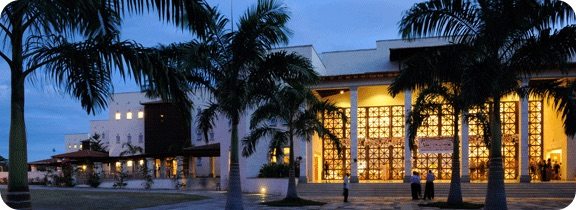
Fee Schedule
Fee Schedule for the 2024-2025 Academic Year.
Please click here to download the 2024-2025 Academic Year Fee Schedule (PDF format)
The above fees are applicable for the Academic year 2024-2025 and are subject to an annual review.
The Tuition fees include course fees, the use of essential course books, library books, co-curricular activities, IT infrastructure, science laboratory equipment, day trips, and certain classroom supplies.
The Residential fee in addition to the tuition fee also includes housing, weekend excursions and activities, laundry, and meals.
Notes
1. Miscellaneous Charges
1.1 Non-Refundable Admission Fee. Payable for students enrolling for the first time. The admission fee must be paid to secure a place for a child in the Academy.
This cannot be deferred or paid in instalments. The due date is one week after the offer has been accepted.
1.2 Refundable Security Deposit. Around 10% of the fees are payable on acceptance of admission and
should be paid together with the admission fee mentioned above. As the Security Deposit is different between
the PYP, MYP and DP, the differential will be invoiced when the child is transferred from PYP to MYP and from
MYP to DP. It is refundable when a student leaves the school as long as the required notice has been given in
writing and “No Dues” clearance is obtained from the Academy. No interest is payable on this deposit.
1.3 Good Faith Deposit. Paid for Grade 1, Grade 11 day students and all residential students to secure their
place, as part payment against their first Semester fee, due to limited capacity. This will have to be paid as soon
as the admission of the student is accepted for new joiners (including Grade 1)students and before 30 April for the
Grade 11 Students. All other residential students will pay the Good Faith deposit together with the Admissions Fee.
In the event that the student does not join the Academy, this deposit will not be refunded.
1.4 Lunch. The rates indicated above are applicable only if paid in advance at least for a whole semester
(50% of the total cost). The daily lunch rate is KES 400 for MYP and DP students and KES 350 for PYP students.
1.5 Medical Insurance Premium. Paid separately by residential students with the first tuition fee instalment.
1.6 Stipend. Paid separately by residential students and will be managed by the Academy. The students will be
able to withdraw a maximum KES 500 per week to cover any personal expenses. Any balance with the Academy will
be paid to the students at the end of the Academic Year.
2. Tuition
2.1 Sibling Discount. 5% is applicable for the second child, 10% for the third child, and 15% for the fourth and subsequent children. The discount will be adjusted according to the number of
children attending the Academy at the same time. This discount is not applicable where a family is receiving financial assistance.
2.2 Tuition Fee. Academic Year 2024-2025 fees are payable in two equal instalments (for each Semester), no later than 15 July 2024
and 15 December 2024.
2.3 Discount of 3% will be given on the tuition fees if paid for the whole year before the deadline (15 July 2024). These discounts
are applicable on the net amount payable after other discounts have been deducted and is not applicable to the families who receive
financial assistance.
2.4 AKDN Discount. AKDN employees, upon confirmation with any of the AKDN agencies, will get the following discount:
20% for residential students and 5% for any day students.
2.5 Currency. The fees can be paid in US dollars or Kenyan Shillings. The US Dollars fees will be indicated on the invoice using the exchange rate at which the banks are buying USD from the Academy. The Academy however reserves the right to change this policy.
3. Late and Outstanding Fees
3.1 A monthly surcharge of 3% will be added to the total outstanding dues older than 30 days.
3.2 If fees are not paid within one month’s period following the deadline, the student will be asked to stay at home or in the residences and will not be allowed to attend classes or participate in the other activities undertaken by the Academy. If the fees for the residential students are not settled within 2 weeks following the student being withdrawn from classes, the school may send the student back home. Any student who is out of classes for over 4 weeks could be asked to withdraw from school.
3.3 The Academy reserves the right to withhold results, school certificates, transcripts, or any other information and/or document until all outstanding dues are settled in full.
4. Financial Assistance
Newly admitted students who demonstrate financial needs can apply for Financial Assistance
through the Admissions office immediately after the admission has been confirmed. All current
students have to submit their applications before 8 March, 2024. An independent Committee is
responsible for reviewing and approving any request for Financial Assistance.
5. Withdrawal
If a student wishes to leave the Academy, three months’ advance notice of withdrawal must be given in writing and if not done the pro-rated three months' fees will be due and payable. School clearance will not be possible until any outstanding dues are settled in full.
6. Other Education-related costs
6.1 Field Trips. Students are expected to participate in compulsory curriculum and bonding trips as well as optional trips, for which the parents will be invoiced separately. Information on these field trips will be shared with parents at least one month in advance.
6.2 Exam fees. MYP and Diploma will be billed separately based on actual fees from the International Baccalaureate Organization (IBO).
6.3 Personal Computer. MYP and DP students are required to own a personal computer that meets minimum performance standards as most of the assignments as well as the communication between the teachers and the students are computer-based. The system should be loaded with either iOS or Windows, MS Office, Internet browser, and Antivirus.
7. General Notes Regarding Payment
7.1 The Academy does not accept cash for fee payments.
7.2 All payments must be made by direct bank deposit, bank transfer, or M-pesa even if payment is made by a third party such as a sponsoring organisation.
7.3 Parents are responsible for ensuring that the fee payments are made into the correct bank account of the Academy. In the unlikely event of any change in the bank account, the changes will be communicated to parents in writing via a hand-delivered letter from the Academy.
7.4 Parents must provide the finance office (mba-bursar@agakhanacademies.org), with a hard or an electronic copy of the proof of payment showing the full name of the student and Student Identification Number as soon as the funds have been transferred for issuance of payment receipt. The absence of this information may delay crediting the fees reflected on your account in our system.
7.5 The above terms and conditions may be modified, or new terms may apply to reflect changes in the law or our services. For further information please contact us at mba-bursar@agakhanacademies.org
8. Note on disclosure and sharing of student-related data and information:
Schools will store and may disclose and share information such as a student's name, address, telephone number, date and place of birth, honours and awards, exam papers and other works of the student, parents’ contact and other details, fees charged and outstanding fees against the student, and dates of attendance with third parties as and where is required for the normal operations of the school. The fees-related information can be shared with third parties to assist the school to collect fees where the payments have been delayed and not made for the services provided as per the above term.
Lucy Mwandawiro: The inspiring chemist
Mrs Mwandawiro is a proud to be Kenyan. She studied at Kenyatta University where she was able to earn a degree in education. “I was so excited once I graduated and earned my degree,” stated Mrs Mwandawiro. In addition to her Bachelor of Education in science, she also holds a degree in environmental chemistry from the University of Nairobi.
Before coming to the Academy, Mrs Mwandawiro taught at the Jaffery Academy in both Nairobi and Mombasa. She was also involved in the government schools as she worked in the Teacher Service Commission. She became one of the faculty members at the Aga Khan Academy Mombasa 10 years ago. “This is my 11th year and I am proud to be a teacher,” she says emphatically. Although Mrs Mwandawiro had been considering teaching since her college days, she was not always sure that it was the career for her. However, over time she came to enjoy teaching. She explains that teaching is a career which comes with many rewarding aspects. For Mrs Mwandawiro, the most satisfaction comes from when students understand what is being taught. She says, “It is just so rewarding seeing a concept change from hard to easy for a student.” She also says that “another rewarding aspect of being a chemistry teacher is when students link chemistry to their everyday life.”
Mrs Mwandawiro is also a dorm parent in the residential programme at the Academy. In her opinion, the residence has an atmosphere where students nurture good habits, develop independence and set high standards for themselves. In addition, she says that “the residences are a wonderful way to let students from different parts of the world bond together and learn from each other’s cultures.”
Mrs Mwandawiro appreciates the opportunities for professional development at the Academy. “I learned different and effective ways to approach teaching and learning that were friendlier to my students. I like the way the Academy believes that teachers are still learning.”
In addition, she cites the values system informed by the Aga Khan Curricular Strands that make the Academy unique as we strive to be ethical people who respect and accommodate others who are different from us.
Mrs Mwandawiro has been an encouraging teacher at the Academy for 11 years now and has inspired many students. With a Bachelor of Education in science, she has helped many students in the Middle Years and Diploma Programmes, as well as those beyond the Academy. Through her experiences at the Academy, she has learnt and helped others learn as well.
30 November 2016
By Sara Alidina, year 8 (The Reporters)
Photo by Saher Budhwani, year 7 (The Reporters)
Newsletter readers please click here to return to the newsletter (browser version)
Mukhi Family: Cherishing the Academy's nurturing environment
“Through our chain of observation, the Aga Khan Academy Mombasa surely plays an active role in the holistic development of every child. This is our consistent finding all through the two years of IB Diploma programme our daughter studied. This two-year journey at Aga Khan Academy Mombasa was fully laden with profound experiences that we cherish, as we have eventually seen our daughter progress in all domains of development.”
Faliha Altaf Mukhi graduated from the Aga Khan Academy Mombasa in 2017 with an International Baccalaureate Diploma and is now pursuing her Bachelor’s degree in Global Business and Digital Art at the University of Waterloo, Canada. Faliha's proud parents, Aneela and Altaf Mukhi, are very happy with their child’s experience at the Academy. “The overall progress that we have seen in her is outstanding, both academically and non-academically!” they exclaim.
Faliha’s parents reside in Kampala, Uganda. Enrolling their daughter at the Aga Khan Academy, they say, was one of their best decisions. They feel that the educational experience provided by the Academy is exceptional, in the Eastern African region and beyond.
According to her parents, Faliha was able to take advantage of a number of development opportunities during her two years at the Academy. For example, she was the president of the Green Gang, an environmental protection endeavour, and was also involved in reporting for the school's website. In addition, Faliha participated in several information technology projects such as database creation and graphic design – she designed certificates, logos and marketing materials. “This experience at the Academy contributed tremendously towards her dream career in digital art. Through the Academy, she also had an opportunity to intern at the Aga Khan Foundation Uganda which further increased her IT skills and leadership capacity,” her parents mention proudly.
“The Aga Khan Academy Mombasa is modern and well informed in implementing an effective educational approach,” say Aneela and Altaf. They particularly appreciated the communication facilitated by the Academy through which parents are kept up to date on the curriculum, activities, assignments, results as well as overall performance. “This regular monitoring through effective means of communication helps the parents to take immediate action and ask for assistance from the very cooperative and talented teachers,” they comment.
For Faliha’s parents, the Aga Khan Academy helped tap into the hidden talents and potential of their child. “The day we were informed by our daughter’s mentor that she had successfully led her team towards their destination on their mountaineering adventure on Mount Kassigau, we felt very proud indeed! It made us reflect on her perseverance, leadership and analytical ability for problem solving. These innate abilities, somehow, remained subdued before this experience at the Academy,” they note.
“I can happily say that the Aga Khan Academy Mombasa expresses all the traits of a learning community with all stakeholders having shared values and vision. Students at the Academy are active participants in learning... Such an environment truly nurtures them fully,” says Aneela. Moreover, Faliha’s parents find the systems at the Aga Khan Academy Mombasa to be well organised, and they commend: “Residential and academic, both sectors are remarkably performing to the best of their ability. Well done all!”
Sumeya Taquidir: Becoming a dynamic teacher
Sumeya Nemane Ussene Taquidir believes learning is a continuous process and that the Aga Khan Strands help her, as a teacher, to be dynamic and creative.
Sumeya is a year 6 and 7 Middle Years Programme science teacher, who joined the Aga Khan Academies through the Teacher Preparation Programme, which develops new teachers into International Baccalaureate practitioners. She spent a full academic year at the Aga Khan Academy Mombasa as part of her training through the programme before joining the Aga Khan Academy Maputo.
Born in Maputo, Mozambique, Sumeya graduated with a Bachelor’s of Education in science (Physics and Minor Electronic) from the Pedagogical University, Mozambique. She joined the Academies because of their philosophy of education, which engages students actively in the process of learning, and the environment of continuous professional development that helps teachers develop effective teaching methods.
During her time in Mombasa, Sumeya had the opportunity to learn how to improve her teaching skills. When asked what helped her become a more effective teacher, she said it was, “the opportunity to go to the Academy in Mombasa for training, [where] we received support in various areas in order to improve our methodologies of teaching. [The Academy provided] us the opportunity to participate in workshops, online trainings and use online resources.”
Sumeya feels that the most rewarding aspect of teaching is when she sees students applying the Aga Khan (AK) Strands in different ways. The Aga Khan Strands are cross-curricular areas of learning that help students develop dispositions and knowledge required by future leaders. Sumeya recalls, “My special memory from the Academy in Mombasa was my first day of teaching. I was very nervous mainly because I was being observed. The lesson was good, the students were familiar with the learner profile and the AK Strands, therefore, it was easy to deliver the lesson.”
She believes that with the teacher’s incorporation of the AK Strands and the learner profile into lessons, the students are better able to understand why they should respect other cultures and work together.
Although Sumeya knows that teaching is not an easy job at times, she believes that accepting challenges, communicating with students and their parents, and reflecting on teaching helps achieve positive results.
“I think it is important to create an environment with mutual respect, honesty, good relationships, and communication should be a highest priority…My rule as a teacher is to guide the students to build [their] knowledge and provide a safe environment for learning with collaborative work, respect and sharing ideas among them.”
The Academies are designed as residential schools, with many of the Senior School students living on campus. During her time in Mombasa, Sumeya had the opportunity to interact with students in the Academy’s residences, and believes that residential life complements academics and produces leaders. “They can have a different experience living with others of different cultures. They can build the spirit of leadership and they learn to think for themselves."
Teaching is ultimately a two-way process for Sumeya. She explains that she too learns from the unique environment of the Academies and through interaction with students of diverse backgrounds. “I am conscious that learning is a continuous process; every day we learn something new [which] makes me more curious to learn new things. That is why we have to be creative and dynamic teachers.”
By Inaara Gangji
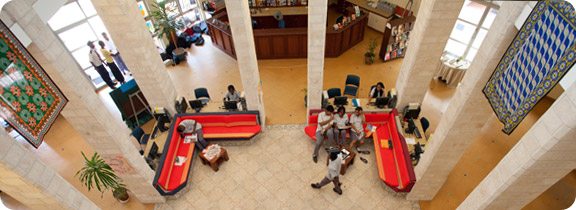
Subscribe to the Aga Khan Academies Newsletter
Aman Punjani – alumnus turned state cycling champion
Aman’s riding career began when he bought a road bike to start competing in triathlons as part of his IB MYP Personal Project, which was to write a book for triathletes. His first competitive race was in January 2014, when he was in grade 10, and later that
year he won the overall championship in the inaugural edition of the Hyderabad Racing League. At the national competitions in the same year, he placed 7th in the road race which fueled his desire to continue riding, racing and perfecting his performance.In 2015, Aman spent a month training in Belgium as part of the Indian Pro Cycling Project’s ‘Class of 2015.’ One year later at the nationals, he placed 5th in the U-23 category. “This is just the beginning of something big,” says Aman. “My goals for the year ahead are to make it to a U-23 development team in the US, and to represent India at the Asian and world championships.”
Aman again headed to Europe (Belgium and Switzerland) for a month in July 2017 where he trained and raced with bikers from all over the world. He is presently studying Psychology at the University of Colorado, Boulder. He has been diagnosed with ADHD and dyslexia, and wants to better understand these conditions and assist those with similar issues. Biking has been, for him, therapy in itself.
When asked which part of the Academy education most impacted him, he says, “The service component. It’s something I carry forward, even though I’m not in school, even though it’s not required. I tend to look out for people who aren’t as lucky or fortunate or talented as I am because I’ve had the right support. I look forward to putting more people in that position.”
The Academy is incredibly proud to have as its alumnus such a dedicated and gifted athlete who leads in his field at the age of 20. We wish him all the best as he sets his sights on the international cycling circuit!
Visual Arts Educator Models Lifelong Learning
Vijayaraghavan Srinivasan is a prolific painter and video artist whose work explores the intersection between self and society. He facilitates IB Visual Arts at the Academy, in his words, “aimed at developing a strong formalistic and aesthetic understanding as a basis for unique personal expressions in my students. I believe the post-modernist approach to teaching Visual Arts enables students to rediscover the intelligence towards relationships by creating links with multiple disciplines and capitalise on imaginative novelty.”
Over the last decade, he has participated widely in various biennales, video festivals, and art residency programs across India and the world. This allows him to gain insights into contemporary art styles and enhance his pedagogical strategies in teaching art appreciation to promote creativity, critical thinking and encourage artistic independence along with a spirit of inquiry.
“For seven years,” Vijay tells us, “I have had the wonderful opportunity to instruct a diverse group of primary, middle and senior school students. I encourage and expect my students to be confrontational towards themselves as well as towards what they are seeing, to always question – never settle, and to be aware of the wonder that can be revealed by the creation of a work through honesty, passion and empathy.”
In 2016, Vijay’s piece The Trinity Saga was published by Aesthetica Magazine in the UK. The Aesthetica Artists Directory is a global network of artists engaging with the professional art world through forums for discussions and interactivity both in the print and digital spheres, where the best in emerging art from around the world has a chance to be discovered.
Proving that he embodies the philosophy of lifelong learning, in the summer of 2016 Vijay attended an advanced-level visual arts course at the Berlin Art Institute Studio Program, which is closely tied to the IB Diploma Programme art curriculum. The course work offered advanced-level studio art practice and experimentation with mixed media. “The avant-garde art practices and experiments with unconventional processes further enhanced my understanding of contemporary art practice,” says Vijay, “and focused on producing artwork in a transdisciplinary way, with compassion and responsibility as key themes.”
After the course, Vijay had the opportunity to work on a collaborative project with Kelly Reedy, an American experimental artist who specialises in art therapy. Labelled Under the Ageis, the mixed media video installation explored the archaic myth of Medusa in relationship to the primal aspects and duality of the ‘great mother’ and ‘terrible mother’ archetypes. Reedy’s research into psychological theories concerning the quality of the attachment of the primary care giver or “mother” in relation to the development of her child’s security and sense of self, accentuate her exploration of the transformative powers of the creative process in art to heal and make whole again.
“I encourage my students to develop a strong formalistic and aesthetic understanding of art as a basis for expressing their own personal vision,” says Vijay. “I encourage each of them to grow on their own, to be free to make mistakes, to push themselves in ways that their work takes them. I feel that self-directed education is inevitably the best way to guide young people in their education as students of art.”
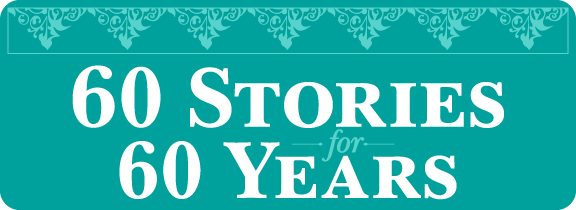
60 Stories for 60 Years
To meet these inspiring individuals, check here for a new story each week during the Jubilee year. On social media, you can like us on Facebook and follow us on Twitter @AKAcademies.
|
Alumna, Aga Khan Academy Mombasa |
Students, Aga Khan Academy Mombasa |
|
Alumna, Aga Khan Academy Hyderabad |
Teacher, Aga Khan Academy Hyderabad |
|
Student, Aga Khan Academy Maputo |
Staff, Aga Khan Academy Network |
|
Alumnus, Aga Khan Academy |
Student, Aga Khan Academy Hyderabad |
|
Teacher, Aga Khan Academy Hyderabad |
Student, Aga Khan Academy Mombasa |
|
Student, Aga Khan Academy Mombasa |
Alumna, Aga Khan Academy Mombasa |
|
Alumna, Aga Khan Academy Mombasa |
Alumnus, Aga Khan Academy Hyderabad |
|
Alumna, Aga Khan Academy Hyderabad |
Alumna, Aga Khan Academy Mombasa |
|
Student, Aga Khan Academy Hyderabad |
Alumnus, Aga Khan Academy Mombasa |
|
Student, Aga Khan Academy Hyderabad |
Teacher, Aga Khan Academy Maputo |
|
Alumna, Aga Khan Academy Hyderabad |
Student, Aga Khan Academy Mombasa |
|
Student, Aga Khan Academy Mombasa |
Staff, Aga Khan Academy Hyderabad |
|
Student, Aga Khan Academy Mombasa |
Teacher, Aga Khan Academy Maputo |
|
Student, Aga Khan Academy Mombasa |
Teacher, Aga Khan Academy Maputo |
|
Teacher, Aga Khan Academy Mombasa |
Alumnus, Aga Khan Academy Hyderabad |
|
Teacher, Aga Khan Academy Maputo |
Student, Aga Khan Academy Hyderabad |
|
Student, Aga Khan Academy Mombasa |
Staff, Aga Khan Academy Hyderabad
|
|
Alumnus, Aga Khan Academy Mombasa
|
Staff, Aga Khan Academy Mombasa |
|
Student, Aga Khan Academy Mombasa |
Parents, Aga Khan Academy Mombasa
|
|
Alumna, Aga Khan Academy Mombasa |
Alumna, Aga Khan Academy Mombasa |
|
Teacher, Aga Khan Academy Maputo |
Alumni, Aga Khan Academy Mombasa
|
|
Alumna, Aga Khan Academy Hyderabad |
Student, Aga Khan Academy Mombasa |
|
Alumna, Aga Khan Academy Hyderabad |
Alumna, Aga Khan Academy Mombasa
|
|
Alumnus, Aga Khan Academy Mombasa |
Student, Aga Khan Academy Mombasa |
|
Alumna, Aga Khan Academy Mombasa |
Student, Aga Khan Academy Hyderabad |
|
Teacher, Aga Khan Academy Maputo |
Student, Aga Khan Academy Mombasa |
|
Teacher, Aga Khan Academy Hyderabad |
Alumnus, Aga Khan Academy Mombasa |
|
Felix Ngumo |
Samson Suhas |
|
Sazil Ramani |
Karishma Bhagani |
|
Alumnus, Aga Khan Academy Mombasa |
Khushboo Khoja |
Nuala Alibhai: Enriching educational and social programmes at the Academy
“The Academy through the International Baccalaureate curriculum has earned a positive reputation for its pluralistic approach, providing a holistic learning environment, developing leaders and achieving educational excellence.”
Nuala Alibhai is the Learning Student Support Coordinator for junior and senior schools at the Aga Khan Academy Mombasa. In this role, she works in collaboration with the Academy’s Principals to develop on-going systems of support for the student community. This includes providing leadership, management and advice on inclusion within the school to develop a differentiated programme that both challenges and meets the needs of students. She also ensures that the Student Support Unit effectively identifies students with any needs for additional support need, including gifted and talented, as well as vulnerable students.
She was born in Kenya where she acquired her basic education. She obtained her undergraduate degree from University College London as Speech and Language Therapist. Later she pursued her Masters in Inclusive Education, at the University of the West of Scotland where she completed her research in inclusive education at the early years level.
At the Aga Khan Academy Mombasa, Nuala works on a Value-based Education Programme, as a Curriculum Designer, through the Professional Development Centre at the Academy. She came to the Academy with a diverse background in inclusive education at a school, community and public policy level. “I was keen to apply this knowledge and skills within a mainstream school setting, to enable every student to achieve and succeed in school, career and life,” she remarks.
It has been Nuala’s endeavour to improve social outcomes through strategic planning and capacity building at the local government and community level. She is also passionate about designing and developing alternative educational programmes for vulnerable children, in order to ensure that they realise their full potential, so they can succeed in life as dignified equals. She has achieved both of these objectives by working for the past 15 years as a speech and language therapist and as an educational consultant in both the private and public sectors in Kenya and the UK.
Since September of 2016, Nuala has been with the Academy and appreciates how the Academy has provided her with opportunities to develop her teacher training skills and curriculum development skills. Nuala says, “I enjoy working with teachers who bring their hands on experience in the classroom and subject relevant knowledge to the table so we can enrich the educational and social programmes at the Academy.”
When asked what led her to choose a career in teaching, Nuala replies, “Karma! I started my career as a health professional but on my return to Kenya, I was sought after to do training, policy work and change management in the education sector. As my experience and confidence in the area grew, I began specialising in education. I have always seen myself working with children, so education was also an attractive choice.”
According to Nuala, the International Baccalaureate (IB) curriculum and the Aga Khan Academy strands set the Academy apart from other educational institutions. “It is one of the few schools in Kenya that offers the IB curriculum, which I consider to be the gold standard in education because of its holistic approach, academic rigor and emphasis on community service. The strands are added dimensions that help students make better sense of themselves, others, the world around them and the interconnectedness of all these elements.”
In terms of ensuring a climate of pluralism on campus where students from different racial, ethnic and faith backgrounds work together, Nuala feels the pluralism strand is already integrated into the lessons in the classroom, extracurricular activities after school and during out of school activities. “Collaboration skills are one of the approaches to teaching and learning, so students are exposed to activities that encourage and enable them to work with others who are different from them and have different opinions than them. They are encouraged to listen to others respectfully and consider their perspectives. This builds communication skills and empathy in students. These skills are then transferred to the student’s day-to-day interactions and not only in the classroom,” she reiterates.
When asked about the most rewarding aspect of teaching at Aga Khan Academy Mombasa, she replied, “The collaborative spirit and practice amongst the staff.” She further adds that there is appreciation and inclusion of every individual’s knowledge, skill and experience in decision-making. According to Nuala, strategies and unit plans are collectively produced not only to enhance the quality of the teaching and learning experience for the student, but also to allow the adult to grow, as a professional, in the process. “The teachers on the whole are approachable, warm and a joy to work with,” she comments. Parents are also involved as much as possible in their children’s education, she mentions. Parents get regular updates from the school on their child’s progress and well-being and are given recommendations of how to extend the learning and support beyond the walls of the school, she adds.
Nuala strongly feels that her position at Aga Khan Academy Mombasa has given her the opportunity to individualise the learning for every student. “My prayer is that this opportunity helps them become more self aware, reveal their talents and inspire them to make bigger strides forward with direction and confidence.”
